Italian-Polish Actress from the Other Side of the Camera

![]()
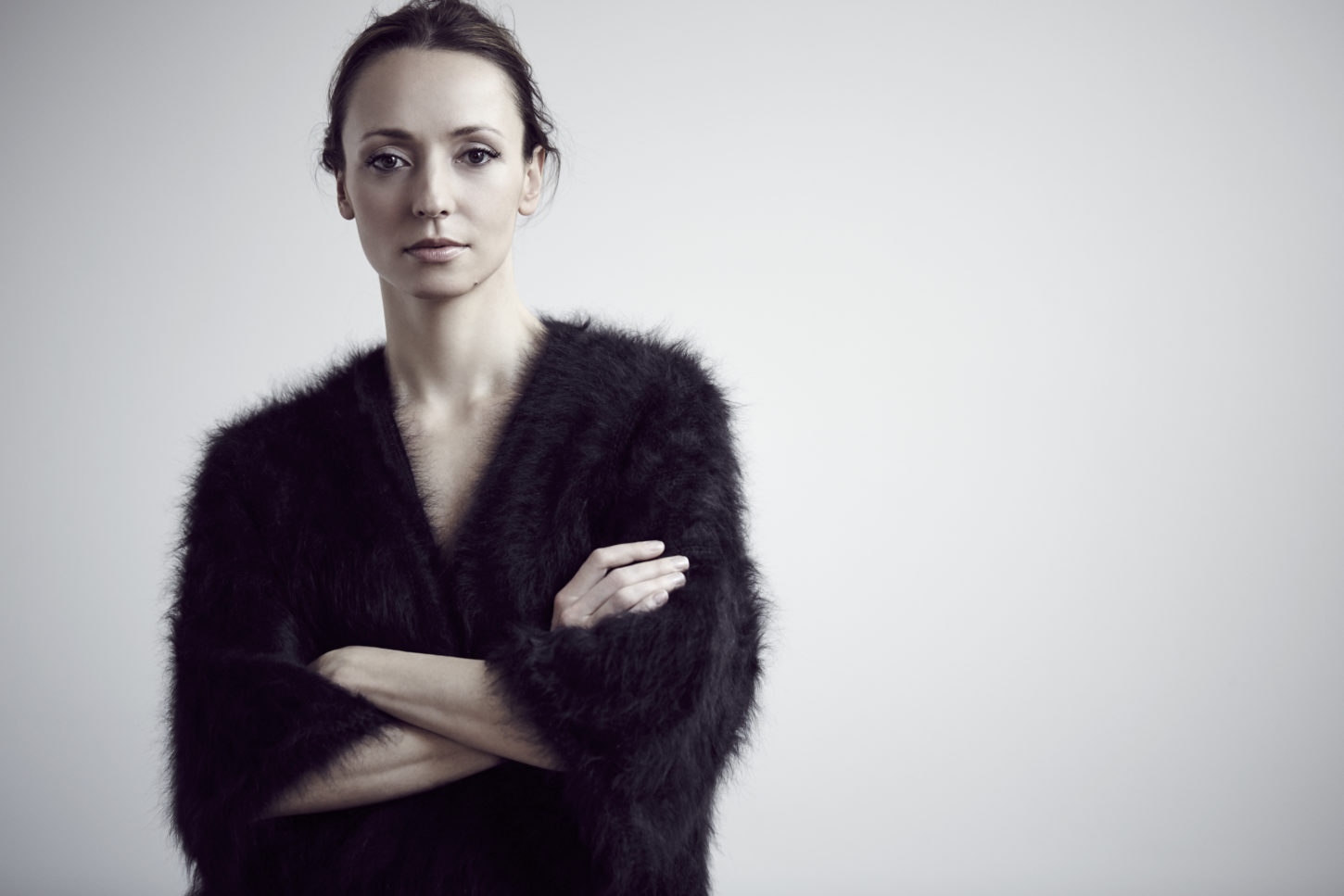
Actress Karolina Porcari’s life has been always divided between two countries: Poland and Italy, even if she speaks more than two languages (including English, basic German and Spanish). She is a half Polish and half Italian, born in Warsaw and moved to Italy with her family when she was a baby. She has lived with her family in southern Italy for eighteen years. She then moved to Milan, where she studied literature, philosophy and theater at the Università Cattolica del Sacro Cuore.
Afterwards, in 2001, Karolina came back to Poland to study acting at the Ludwik Solski State Drama School in Cracow, where she graduated specialising in drama performance, having acted in both movies and dramatic plays. She lives in Poland, in its capital, Warsaw, taking part in the Polish and international productions (films, series, theater) and studying directing at Wajda School. She is and she feels a true European woman. “Don’t we all have common roots?”
The last multinational production she participated in was “Ether” by Krzysztof Zanussi. JL Interviews magazine met her in Rome at the Embassy of the Republic of Poland in the day of its premiere at Rome Film Fest 2018. In Poland she is better known for the cult series “Na dobre i na zle” [For good and for bad]. This year in November she debuted as a director in Rome, at the Nuovo Cinema Acquila, with a short: „Peccatrice” [Me, a Sinner Girl]. That, of course, doesn’t mean she resigns from being an actress. “I don’t want to hold myself back from anything!”.
You are a half Polish and a half Italian. How do you feel with this double citizenship? Have you ever felt more one than another?
I used to say that my heart is beating somewhere on the Italian-Polish border but you know what? Lately I think of myself as an European woman. For last few years I’ve worked in Poland, Italy, Great Britain and Germany. This is what I appreciate most about my work – discovering new people and places while creating. A few weeks ago I visited the Aeolian Islands, the volcanic archipelago in the Tyrrhenian Sea north of Sicily. Each breath was like inhaling centuries of European history, each step is traveling back in time, to the times of ancient Greece. I felt I belonged there, even though I visited the islands for the first time in my life. As Europeans, don’t we all have common roots?
Presently you live and work in Warsaw but, let’s recall, before you have lived for 18 years in Italy, in Apulia and Milan. How different is life in these two countries?
I grew up in Apulia, then I studied literature and philosophy at the Università Cattolica del Sacro Cuore in Milan. I moved to Poland to study acting – at that time I was very focused on theater. Poland, and Cracow especially, was a theater Mecca for me. My dream was to study in the National School of Drama in Cracow, with theater masters, like Krystian Lupa. And there’s a price to pay for your dreams. I wasn’t ready (I guess, no one is) for the ongoing observation and assessment that young actors get in school. The biggest win of the years I spent in school was, along with gaining fantastic creative tools and being able to work with the best, the understanding that one needs to follow their artistic calling, no matter what. Before, Poland was for me this romanticized motherland. Suddenly it became the place to conquer and Italy turned into a warm asylum. Today I’m based in Warsaw, but I work in both countries. In Poland as well as in Italy you can find great art, social malfunctions, beautiful landscapes, crazy politicians and tender, calming relations with other people. In my opinion actors have to learn how to deal with success and failure more than anyone else – we are authors and instruments of art at once.
Is it better to work in cinema in Italy or in Poland?
Oh, I don’t find working in one better or worse. It could be different, though. My first main role on big screen was as young Ukrainian woman, Olga. It was an independent low-budget movie, everybody worked with no guarantee of commercial success (eventually, it was worth it – the movie was critically acclaimed and premiered at Venice Film Festival in 2006). I learned that independent film industry in Italy is thriving, in Poland it barely exists. The second project was “Segreti e sorelle” [Secrets and Sisters] directed by Francesco Jost, a Swiss-Italian co-production. Afterwards I took part in the outstanding “Roza” directed by Wojciech Smarzowski, a brutal portrait of Eastern Europe at the dawn of the Second World War. I followed up with the French-English movie “Zero” directed by David Barrouck, the story of a group of anarchic junkie terrorists. It really does depend on the project, the director and the screenplay, and on the role, of course. Main roles give you many possibilities to express the character’s personality and soul. Supporting roles force you to join someone else’s rhythm and yet can be expressive and sharp. I enjoy taking on both of these challenges.
You participated to many international productions. The last one is “Ether” by Krzysztof Zanussi. How was it to work with a multilingual team?
I’m used to create in multilingual groups. Finding new ways at the crossroads of different cultures is what makes creating so interesting.
Could you tell us more about your role in “Ether”? Why did you find this figure interesting? Would you recommend this film?
In “Ether” I played the role of an aristocratic woman who tries to convince the main character, the Doctor, that God exists. In order to do that, she invites him to a séance. The spiritualist meeting ends up mysteriously, but eventually she fails. The doctor doesn’t share her approach and her beliefs. Krzysztof Zanussi asks himself and the audience fundamental existential questions. The Doctor’s life is troubled waters, we don’t know if he’s going to find peace and be redeemed until the very end of the movie. Although “Ether” takes place at the beginning of the 20th century, it reflects on our present approach to reality. It’s a world that tries to live without God.
How did you feel working with a great cinema Master, Zanussi? How was his approach to the actors? What has he taught you?
The meeting with Krzysztof Zanussi was particularly important for me, an honor I would say. He’s not just a director, he’s a philosopher and a theologian. The interesting thing was that he didn’t exactly “direct” me – we talked a lot, he mapped the cultural context of the story and left me the freedom to create my version of this woman.
Which other great directors did you work with or you would like to work with? Could you tell why you respect them so much?
Well, lately I enjoyed a lot meeting with the American director Martha Coolidge on the set of “Music War and Love”, a love story during the dark times of World War II. She is a fantastic partner who loves actors. From the beginning I felt she trusted me, she gave me precise feedback and a lot of freedom at the same time. My character, Miriam Rubin, is a Jewish upper class woman who loses everything and ends up in the ghetto. I really can’t wait to watch it! Another director who really conquered my heart is Philip Groening (“Die Grosse Stille, Die Frau des Polizisten”). I played a philosophy teacher in his last movie “Mein Bruder heist Robert und ist ein Idiot”, a small supporting role. I was amazed by his absolute devotion to art, to the vision he had, how he was following his intuition without compromises. The movie was presented at the Berlinale this year, in the main competition. If I could make a wish for a project in Poland, it would be to work with Jagoda Szelc. Her debut film “Tower, Bright day” is one of the most interesting movies I’ve seen during the last few years. Of course I’d also love to meet with Agnieszka Holland. There is also a new generation of young directors such as Kalina Alabrudzińska, Agnieszka Smoczyńska and Anna Kasińska. I’d love to meet them on my way. If you ask me about foreign directors, it’d probably say Andrea Arnold, Jane Campion and Jill Soloway. I’m a huge fan of theirs!

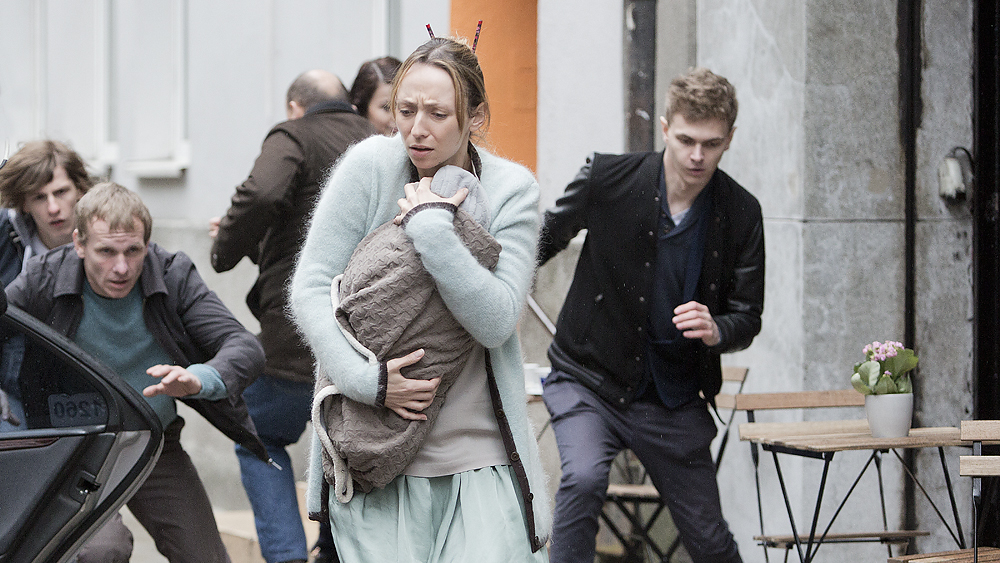

I think every actor has his “better” and “worse” interpretations. Which role was the most important in your career and why (the role you feel most proud of)?
Sometimes it just happens that mysteriously everything falls into place and the actor or actress can express himself or herself without constraints. It can depend on many factors such as the screenplay or thoughtful directing. Anyway, in the theater I feel I’m very lucky. I loved to play Ophelia in Shakespeare’s “Hamlet”, Grusza in Dostojewski’s “The Karamazov Brothers”, Luna in the one woman show “Luna”. Few days ago I performed “The Bad Mother”, the first theater play I directed. Probably that’s the one I’m most proud of, because it deals with issues that concern me in my private life. Link to the trailer: https://www.youtube.com/watch?v=ETZVlcW5VZk It’s an artistic research on motherhood and the creature Rachel Cusk calls “the mother-child”, somebody who is born the day a baby is born, who is not a woman anymore, but is bonded with her child physically and psychologically, probably forever. As a woman and as an artist I try to examine my femininity in connection with the most important role I ever played: the mother. The patriarchic system, which does not necessarily support women, sold this pinkish false vision of children and tried to convince everybody that motherhood is the most important goal to achieve – and at the same time tells you that you’d be a loser if you do not commit yourself to your professional career. Fortunately, this contradiction I faced as a young mother and as an artist turned out to be extremely inspiring. For the same reason in cinema I felt very close to the role of Mila in “The Father” directed by Artur Urbański. She is an actress who has a child and tries to combine her new life role with her artistic ambition basically without any support from her partner, who becomes depressed after his father dies and is not able to become a father himself. Currently I’m also working on a very fascinating role: a woman who suddenly discovers her husband is a mafioso and all their property is a fruit of illegal activities. I can’t go into details, the series is still in its development phase.
We can see you in films, Tv series and theatre. With which public do you feel more fulfilled?
Each medium responds to different needs and I thirst to create with as many means of expression as possible. The stage gives me the direct contact with the audience, an intense lesson on my craft and this one time only romance. In front of the camera I can search more, I’m more like a sculptress or a blacksmith. It’s also exhilarating to be a part of a common effort of big group of committed people that begins on paper and ends in a editing room, or even further, in a cinema.
On 19th November you debuted as cinema director in Rome. What is your short about? How do you feel as director? Would you like to leave acting some day and just do films?
My short film “Peccatrice” (“Me, a Sinner Girl”) takes place in southern Italy, where I grew up. It’s the story of Lucia, an eleven years old girl who rebels against her violent father. The day of her first holy Communion she puts on her white dress and instead of going to the church, she goes to the seaside, where she jumps off a cliff. Her gesture is a scream of despair against the patriarchal family and society’s model she’s forced to be part of. I feel happy and satisfied on the other side of the camera and I have further directing plans, but there is also still a lot of wonderful characters to create as an actress. I don’t want to hold myself back from anything!
Written by Joanna Longawa
Photo cover by Piotr Stokłosa


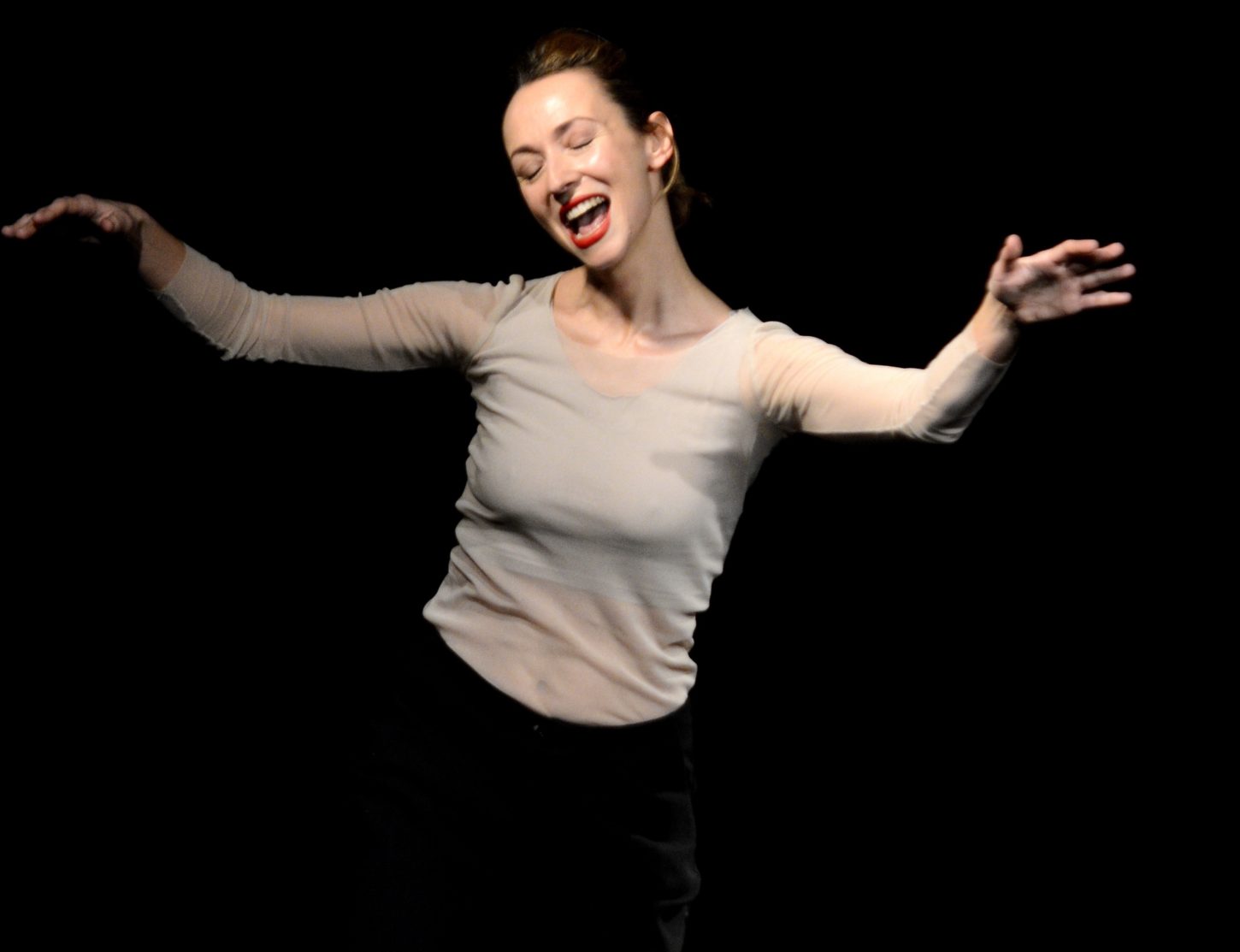


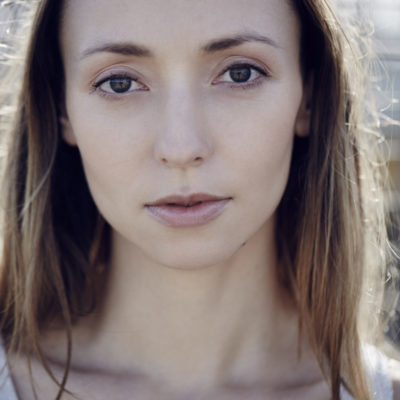
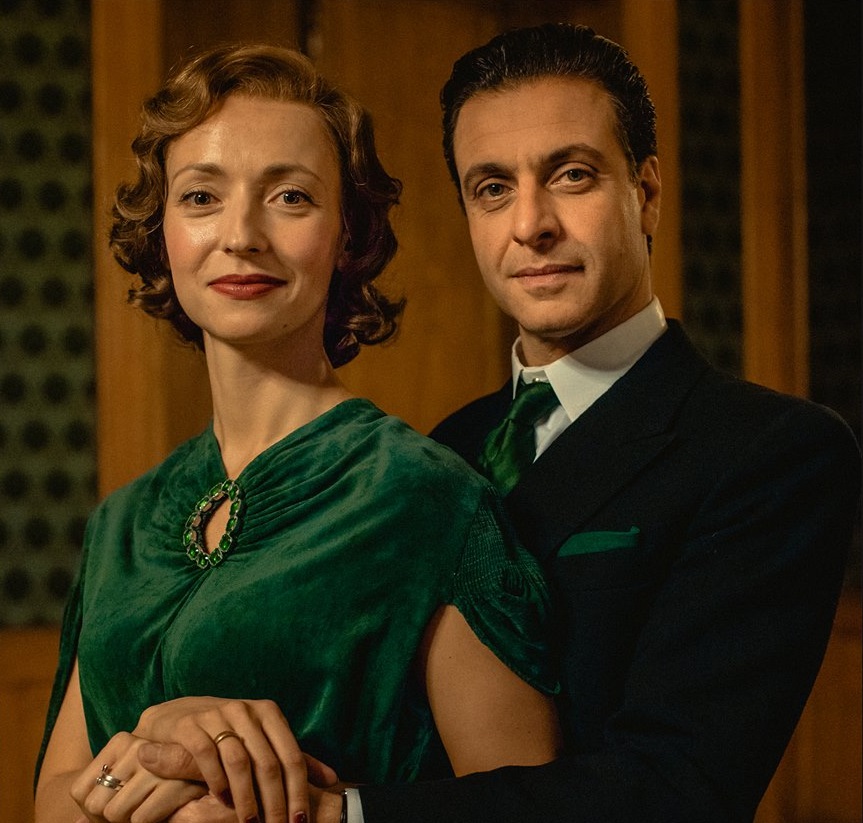
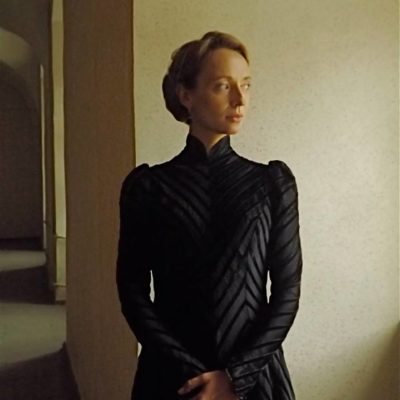
Leave a Reply